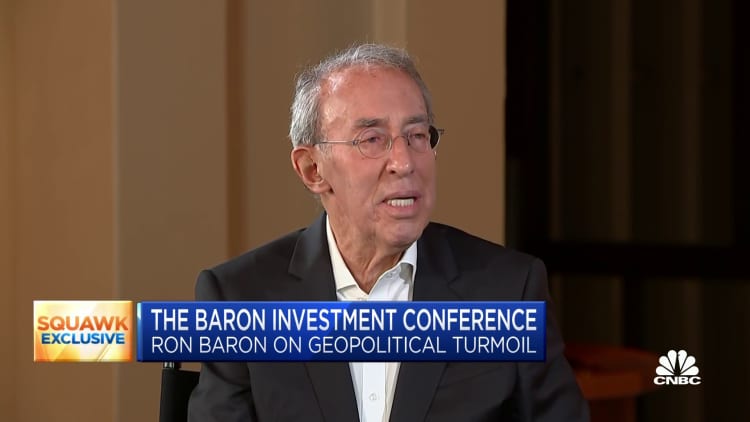To pay for a historic and sweeping expansion of the social safety net, President Joe Biden and Democrats are planning to slap wealthy Americans with higher taxes.
In response, financial advisors and their well-off clients are also scheming. Specifically, they’re looking at moves they can take now to avoid some of those steeper levies later.
Some of the changes to the tax code that could soon be on the horizon include: A new 3% surtax on those who earn more than $5 million; a raise to the top marginal income tax rate to 39.6% from 37% for those with a household income of more than $450,000 and for individuals making over $400,000; and a lift to the capital gains rate, which applies to assets like stocks and real estate, to 25% from 20%.
Advisors say many clients are breathing a sigh of relief at the latest proposals. Biden had called for raising the capital gains rate to 39.6%.
Still, many are dreading a higher tax bill.
“Our clients are concerned,” said Michael Nathanson, CEO and chair of The Colony Group, a Boston-headquartered advisory firm that works with high-net worth individuals. “This would be among the largest tax increases in history.”
Here is some of the action those worries are prompting.
Bracing for higher taxes
Nathanson is recommending certain clients try to accelerate income this year before higher rates go into effect.
If an individual is selling a business, for example, they could try to complete the transaction by the end of the year, Nathanson said. Those who get large workplace bonuses may try to negotiate a way to receive the money before 2022.
Normally he’d also try to maximize future deductions to sidestep the new 3% levy for clients with an income of more than $5 million, but that won’t work in this case because the tax will be based on adjusted gross income rather than taxable income.
“Adjusted gross income is calculated before itemized deductions are factored in, so common deductions such as charitable contributions and mortgage interest would have no effect on the new surtax as proposed,” he said.
To avoid clients being hit at a higher marginal income tax rate next year, Mallon FitzPatrick, managing director and principal at Robertson Stephens in San Francisco, is advising them to consider gifting an income-producing asset like real estate to a family member who falls in a lower bracket.
“The gift giver reduces taxable income and the receiver pays a lower tax rate on the income from the asset,” said FitzPatrick, a certified financial planner who works with clients with a net worth of $10 million or more.
Another way to report a lower taxable income next year would be to delay some of your charitable giving — and the deductions they earn you — until 2022, FitzPatrick said.
“Charitable income tax deductions are more valuable in a higher income tax rate environment,” he added.
Getting ahead of a larger capital gains rate
Wealthier individuals are limited in how much they can prepare for what will likely be a higher capital gains rate in the future.
That’s because policy makers have proposed making the hike retroactive to Sept. 13 of this year.
Still, investors have options, experts say.
This would be among the largest tax increases in history.Michael NathansonCEO and chair of The Colony Group
FitzPatrick said individuals can differ their capital losses until next year, which would offset their gains when the tax rate could be 25% instead of the current long-term rate of 20%. (If your gains are $10,000, but you lost $5,000, your net gain is only $5,000.)
“Next year, all my capital gains may be subject to a 25% cap gains rate,” FitzPatrick said. “So my losses, that I can net against my gains, are more valuable next year.”
Before the estate tax ensnares more people
Lawmakers are also proposing reducing the estate and lifetime gift exclusion to around $6 million from the current $11.7 million, meaning more people will be hit by the estate tax of up to 40%.
As a result, advisors say they’re telling clients considering lifetime wealth transfers do so before the end of 2021.
There are a number of ways this can be done, FitzPatrick said.
You can give the gift outright, which means you surrender control of the assets to the receiver. The other option is to use an irrevocable trust.
With some trusts, you also give up power over the assets — and therefore the estate tax liability — but you may still be able to set some controls on how the funds are distributed, FitzPatrick said. For example, perhaps you don’t want a child to be able to receive income from it until they reach age 25.
“This helps guard against rapid depletion of the trust,” FitzPatrick said. “After the death of the original beneficiary, their children become the beneficiaries and so on. [It] preserves wealth for future generations.”





